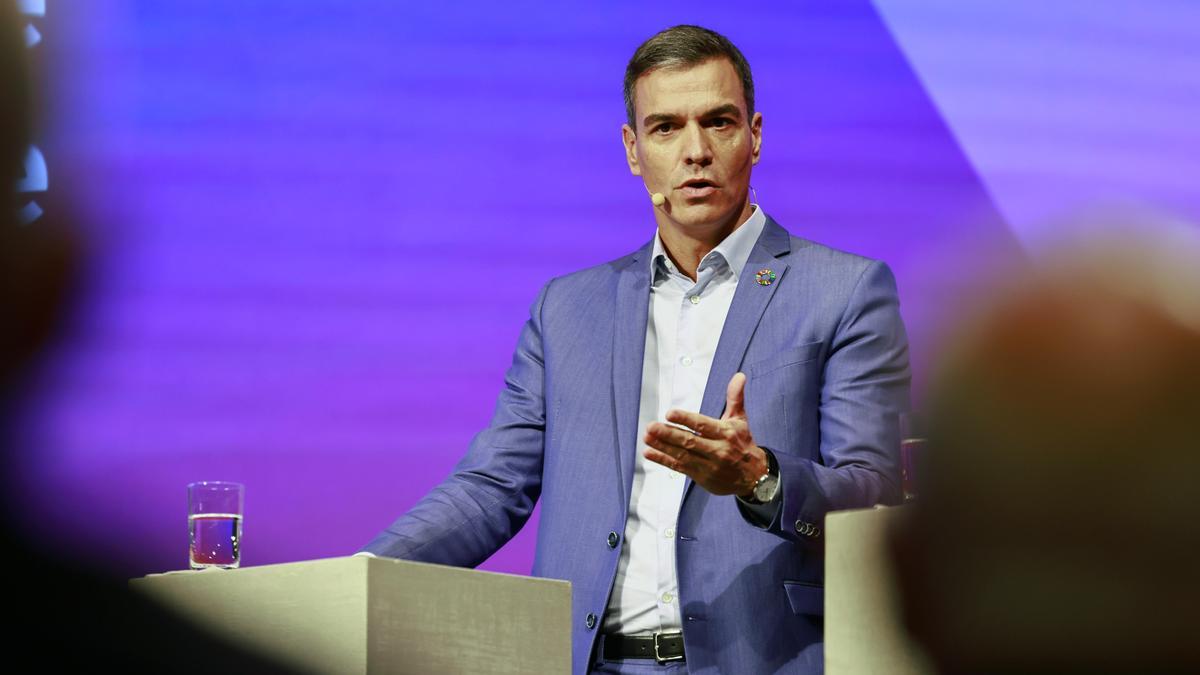The “Midcat” gas pipeline, the interconnection project that was to connect Spain and France through the Pyrenees, is already underground. In view of the blockade and the impossibility of reaching an agreement, the president of the government, Pedro Sánchez, his French counterpart, Emmanuel Macron, and the Portuguese prime minister, António Costa, have decided to abandon it and bet on an alternative that they consider “Feasible” and “vital”: a “Green energy corridor” between Barcelona and Marseille -baptized with the name of BarMar- which will allow the transport hydrogen and green gases from the peninsula to Europe and which could be ready, according to Moncloa sources, within a horizon of four or five years. The three countries also agree to step on the accelerator in development of electrical interconnections.
“What we have achieved today after many months is very important. We have managed to unblock the green energy corridor between the Iberian Peninsula and the EU as a whole and we have achieved it with a pro-European commitment and solidarity and also an ecological transition between the three governments “, announced Sánchez at the meeting. ‘arrival at European Council which will take place on Thursday and Friday in Brussels. The political agreement on the new infrastructure, which is preparing a meeting three in the permanent representation of France before the EU, it means definitively burying the Midcat project and also the 800-kilometer submarine tube between Barcelona and Livorno.
“Portugal, Spain and France have decided to abandon the Midcat project and instead create, as a priority, a green energy corridor that connects Portugal, Spain and France with the EU energy grid”, underline the three countries in a joint statement. in which they agree that this maritime pipeline from Barcelona to Marseille, designed to carry green hydrogen but which will initially allow the transport of gas, is the “more direct and efficient option” to connect the Iberian Peninsula with Central Europe. Although there are still no details on the project or the route, the commitment foresees that the new infrastructure, of about 360 kilometers, will have to be technically adapted to the transport of other renewable gases, “in addition to a limited amount of natural gas as an energy source. temporary and temporary and transient source of energy “.
Details in Alicante in December
The three-party pact also includes a commitment to complete the gas pipeline between the Portuguese city of Celourico da Beira and Zamora and to promote electricity interconnections. The aim is to accelerate the launch of the submarine power cable across the Bay of Biscay, as well as identify, evaluate and initiate new electricity interconnection projects between France and Spain, although possible options have not been specified. The three European leaders, who closed the deal during a one-hour business meeting, will agree on the details, including project deadlines and the volume of investment needed, at the Euromed Leaders Summit to be held on 8 and 9 December in Alicante. “I will be in Spain in December to complete this project which has the vocation of receiving European funding”, explained Macron who, like Sánchez and Costa, aspires to be financed with European funds.
The new initiative will not only make it possible to transform Spain into a gas transportation hub, thanks to its regasification capacity, and to develop “coherent” interconnections with the commitment to the ecological transition and green energies such as green hydrogen, but to develop new electrical interconnections in parallel, another of the great demands that Paris has had together with the commitment to renewable energy. According to Moncloa sources, Spain was the first country to propose this solution, which they define as “European, environmentalist and supportive”, and which Paris and Lisbon have supported because it represents “a solution consistent with the ecological transition”. Spain believes that the agreement represents an important “step forward” because due to the French blockade it was a question of having “a hydrogen and gas corridor or of having nothing”.
Turn in Prague
Related news
The trio was announced two weeks ago by Macron, during the informal summit of European leaders in Prague where the French leader poured cold water on the Midcat project, arguing that its development would take too long and that its intention was to prioritize electrical interconnections. A few words that caused a sensation, including the reply of the third vice president, Teresa Rivera, and which ended with the commitment to hold a meeting to try to unblock an agreement. Initially the intention was to hold the meeting in Paris before the European Council which starts this Thursday in Brussels, but in the end the meeting took place this Thursday at the permanent representation of France.
“I think this is excellent news for, without a doubt, Spain. Also for Portugal and France, but fundamentally for Europe, because we are carrying out an exercise of solidarity commitment with the rest of Europe. And that solidarity it is consistent with our commitment to the ecological transition “, highlighted Sánchez. “This is good news, since one of the oldest blocks in Europe has been overcome,” added Costa, stressing that the solution overcomes “the environmental difficulties” generated by the pipeline through the Pyrenees with a “better” alternative. by sea that will allow “to connect with what is the backbone of the green hydrogen network in Europe.


